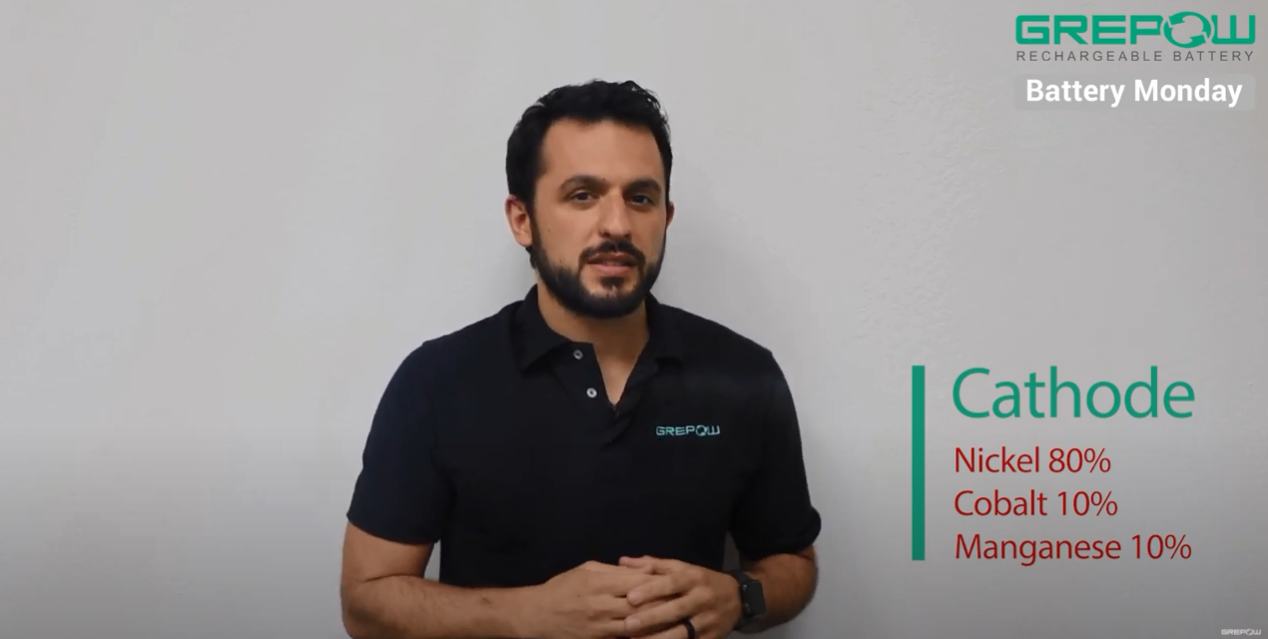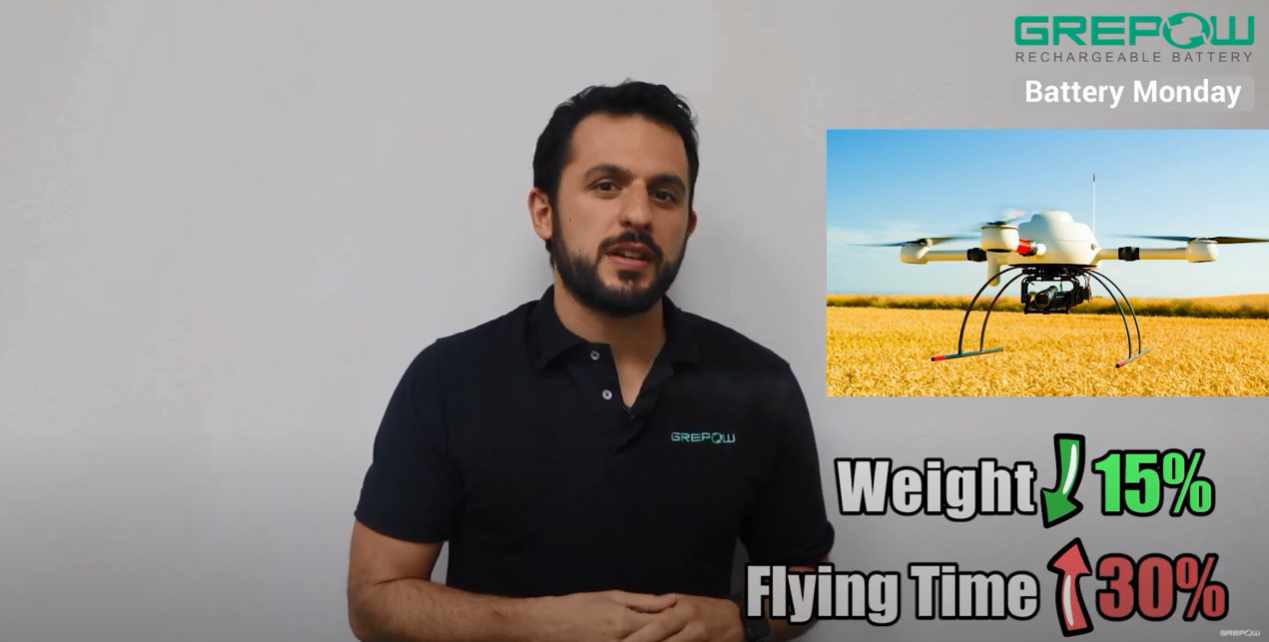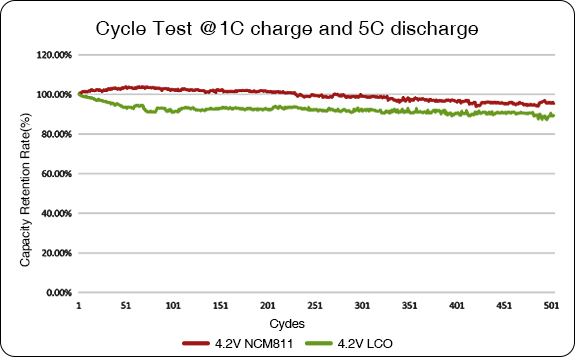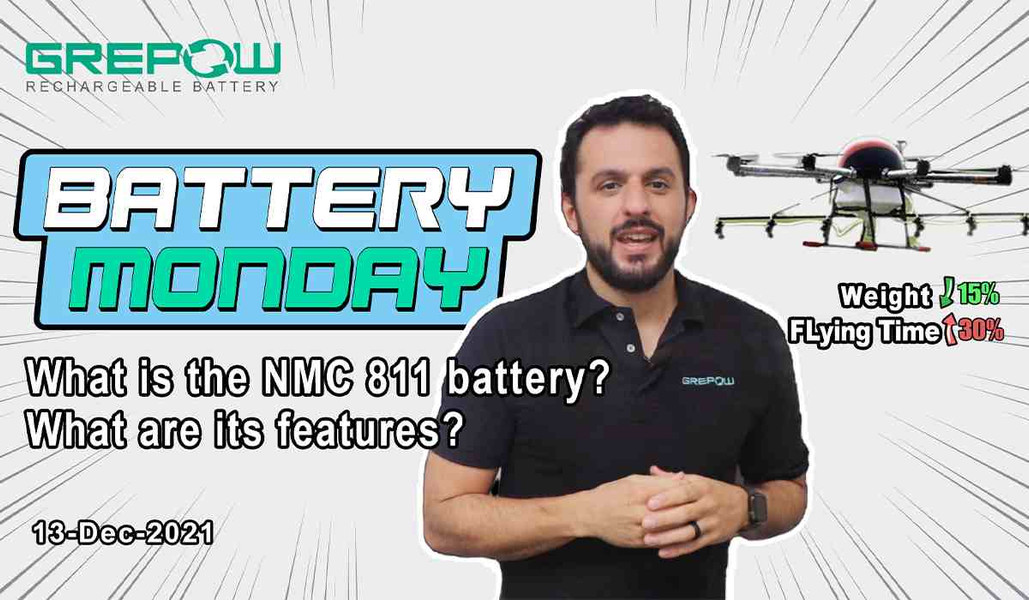What is the NMC 811 Battery? What are its features? | Battery Monday
Dec 14th 2021
On today’s Battery Monday, we’ll be introducing the NMC 811 battery and its features.
NMC 811 Battery
The NMC 811 battery is not a unique and novel battery type, but an improvement on what is already on the market. This foundation is composed of the mainstream lithium battery, in accordance with the different dosage ratios of nickel, cobalt and manganese materials of the battery cathode. It is further subdivided into 111 type, 523 type, 622 type and 811 type, etc. The 811 has the cathode comprised of 80% of nickel, 10% of cobalt and 10% of manganese (8:1:1).

Materials
The most significant feature of the NMC 811 battery is its high energy density. This comes from the nickel in the cathode which can increase the material activity and thus the energy density. Plus, the high nickel content is important for increasing the capacity. The cobalt is also an active component that stabilizes the laminar structure of the material, thereby increasing the discharge capacity of the material. The manganese component, which plays a supporting role in the electrodes, provides stability during charging and discharging. For example, Grepow's NMC 811 battery has an energy density of 275 Wh/Kg.
Features
Weight energy density refers to the energy released per unit mass, expressed in Wh/kg. 275Wh/kg means that 1kg of the battery can release 275Wh of energy. As an example, 275Wh is equivalent to 0.275kWh, which can keep a 10w bulb in your home lit for 27.5 hours. This means that the NMC 811 has more energy for the same quality batteries.
Having a high energy density is great because it reduces the weight of the battery, which is critical for UAVs/Drones/eVTOLs. Using the NMC 811 battery actually reduces the weight by 15%, resulting in an additional 30% operating time and lower maintenance costs.

Test Info
The NMC 811 battery from Grepow also has a long life cycle of over 600 cycles, as shown in the test chart comparing the NMC 811 battery to the LCO battery. Both batteries were simultaneously charged to 4.2V at a 1C rate and discharged to 3.0V at a 5C rate. At the 500th cycle, the capacity retention rate of the NMC 811 battery was 93%, which was higher than that of the LCO battery.

Moreover, the dynamic voltage imbalance is less than 100 mV, making the NMC 811 more stable and safer. In our high temperature test, the NMC 811 battery was stored at 60°C for 30 days without outgassing and it continued to be used normally.
The NMC 811 is a milestone in the battery world, breaking through the possibilities of devices. It has been chosen for many projects already, and it will surely become more sought after in the future.
Video
About Channel
That’s all for today. If you have any questions about today’s topic, or have any battery-related things that you want to know, feel free to contact us at info@grepow.com. Or if anything we could improve, email us, we will read the comment and provide a high-quality battery knowledge tutorial. The Battery Monday channel will update you with the battery knowledge you are interested in.
If you need to order batteries or custom battery solutions, such as UAV/Drone/EVTOL, RC, FPV, Shaped, Industrial areas, please also feel free to contact us, we Grepow/Tattu Battery have a professional R&D team at your service.
Grepow Official Website: https://www.grepow.com/
Tattu US Official Website: https://www.genstattu.com/
Tattu EU Official Website: https://www.gensace.de/

